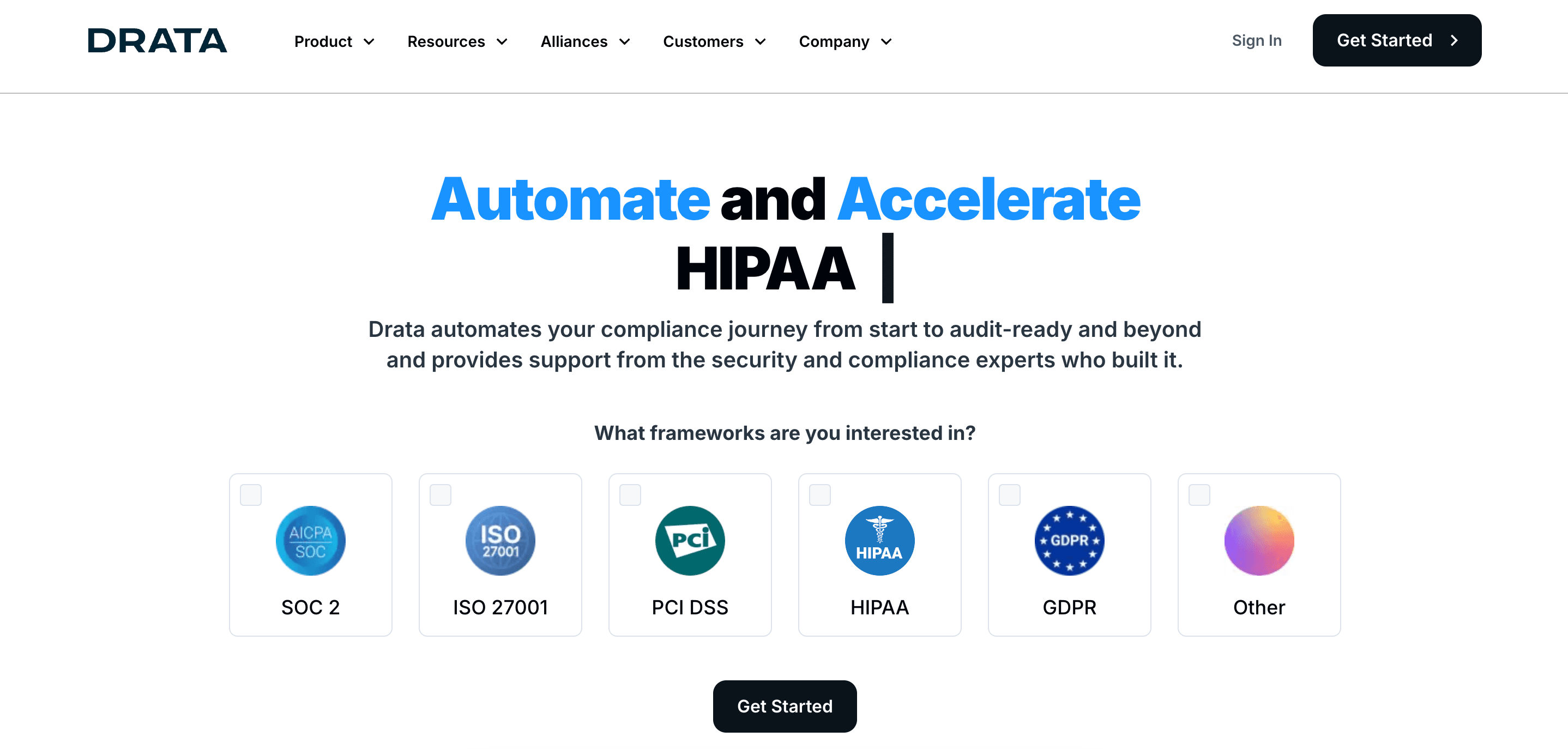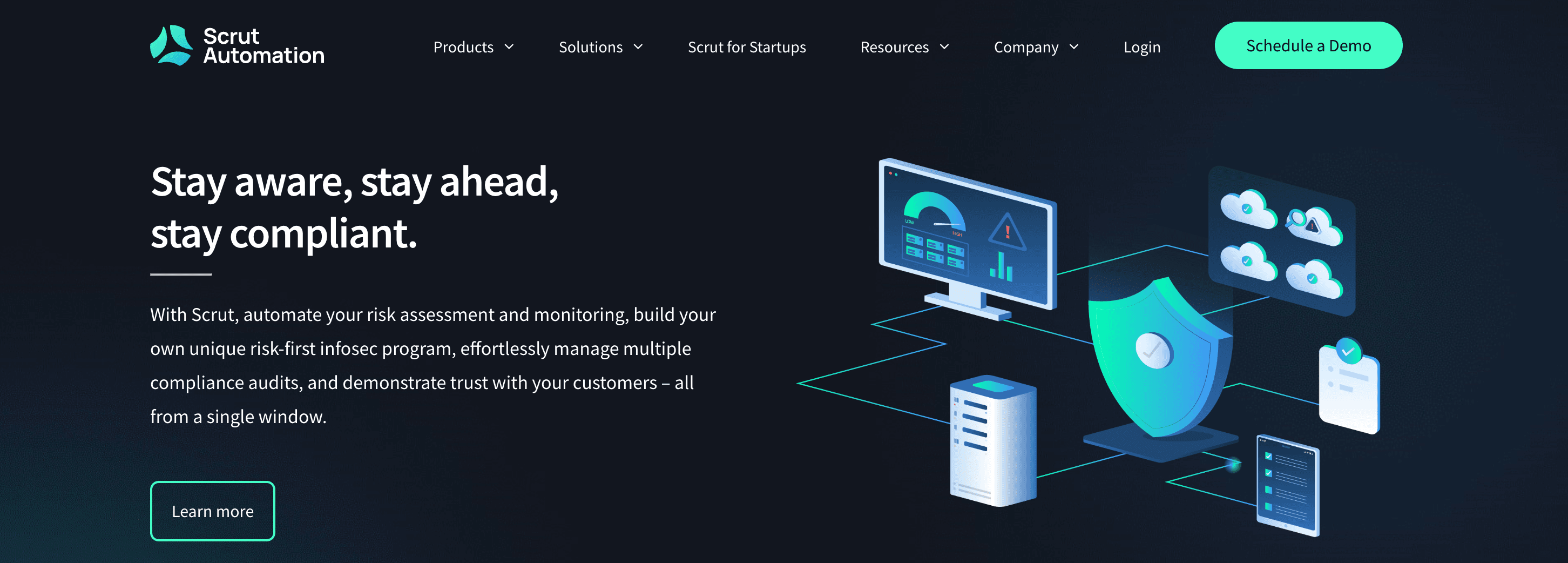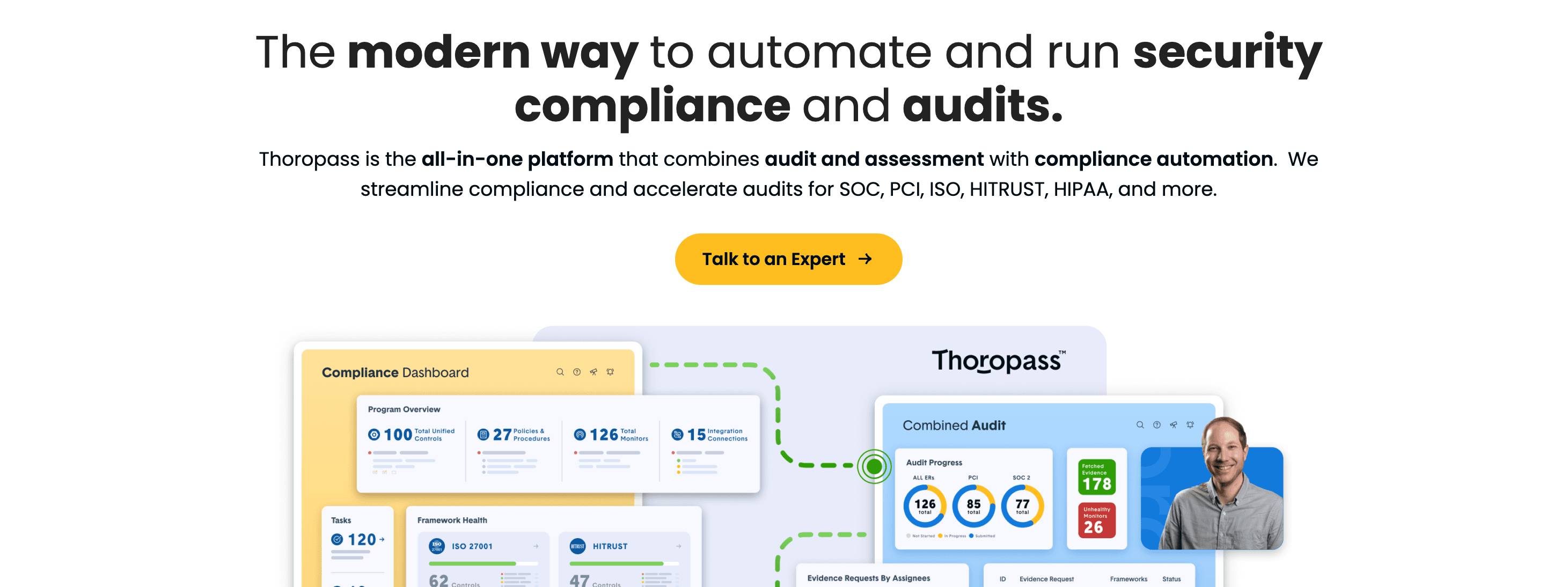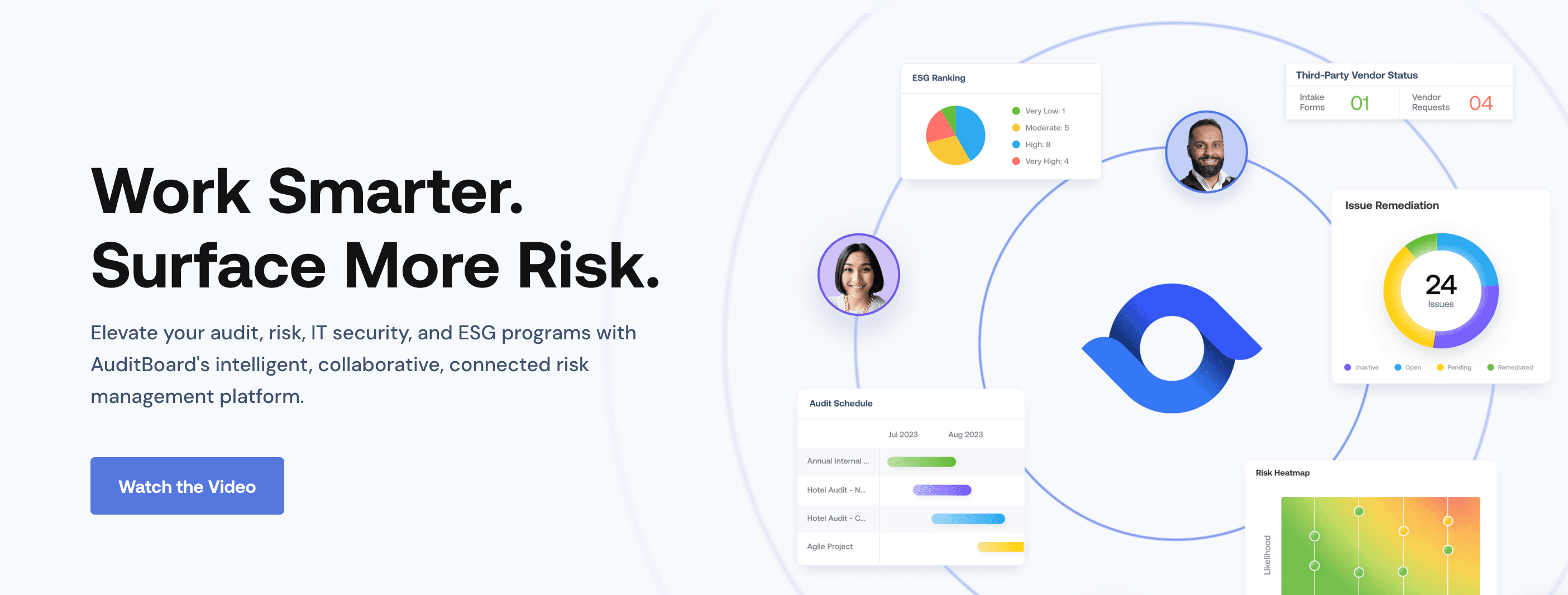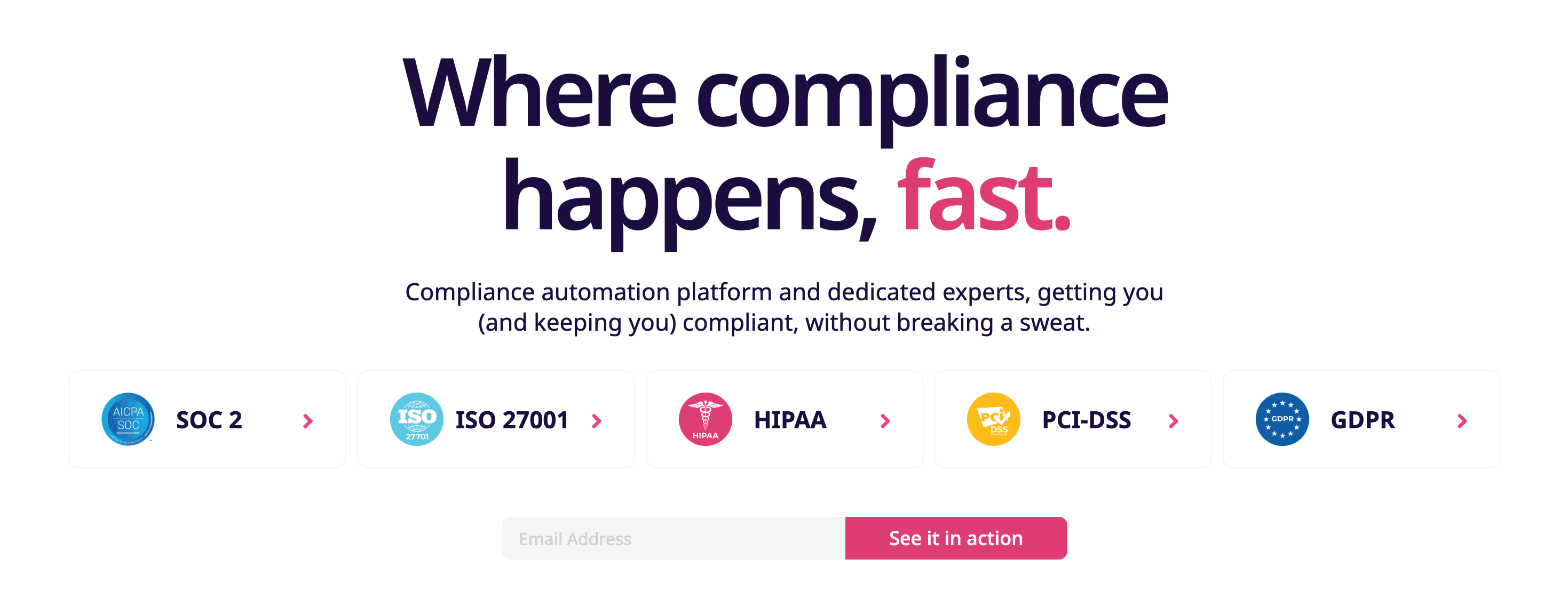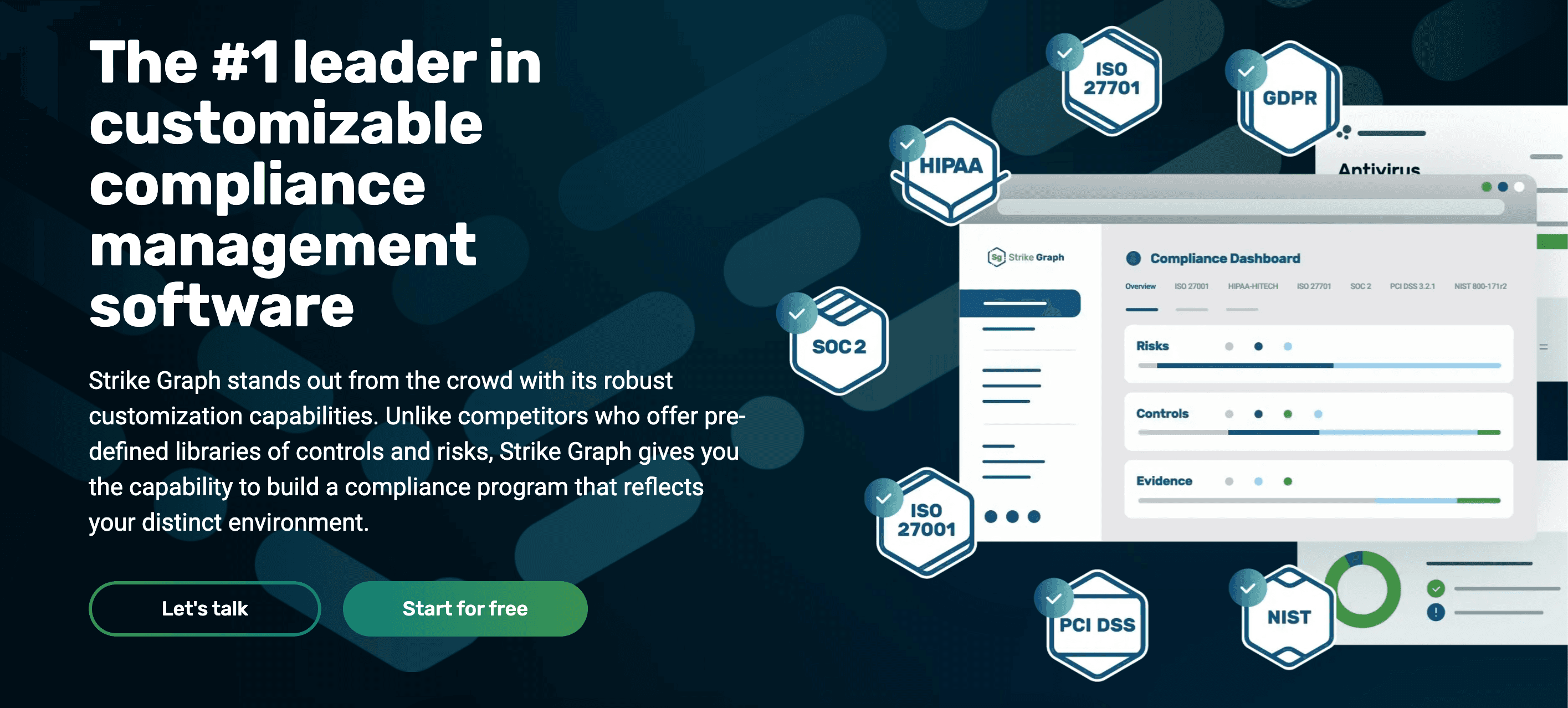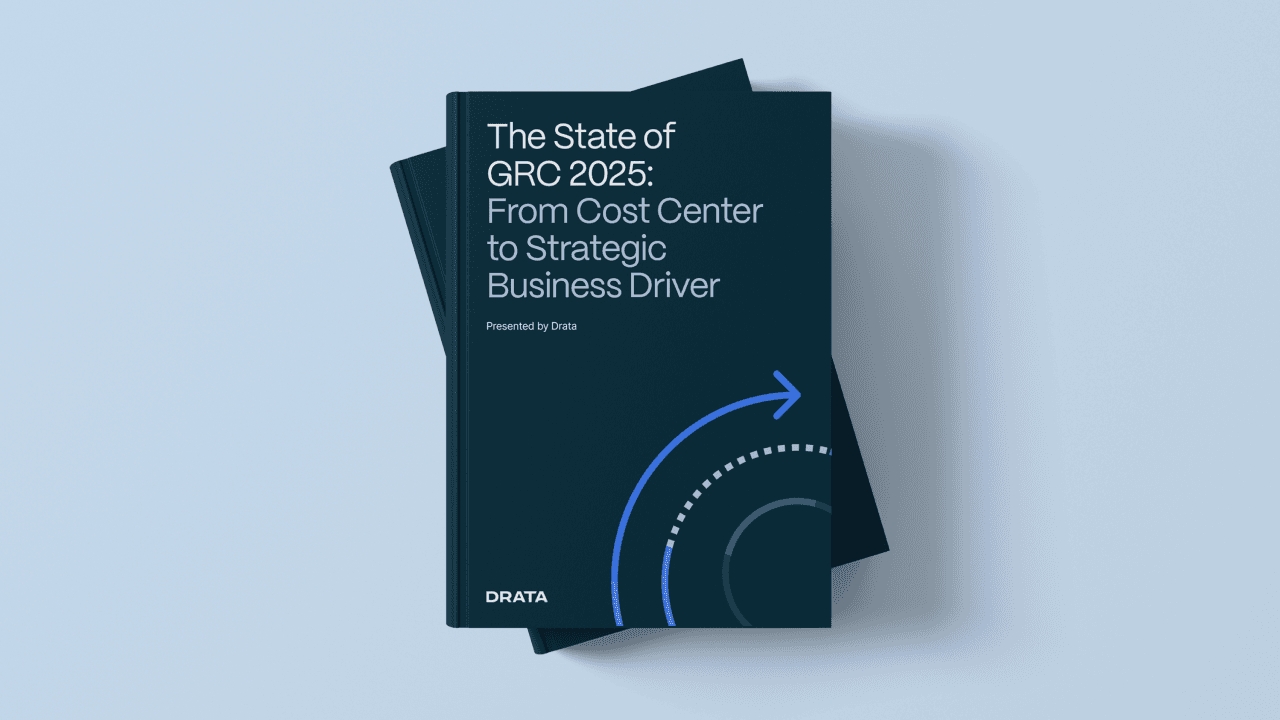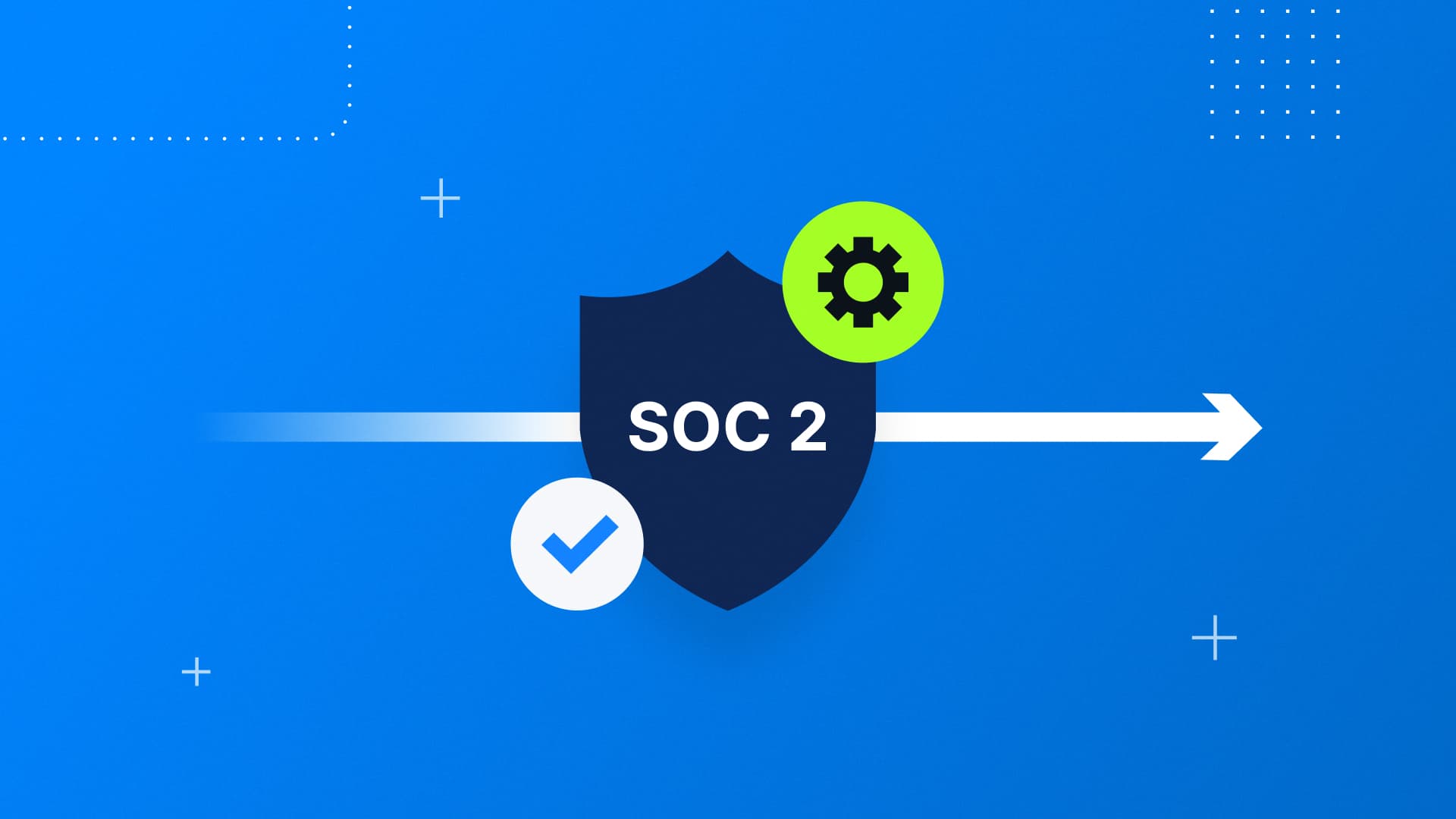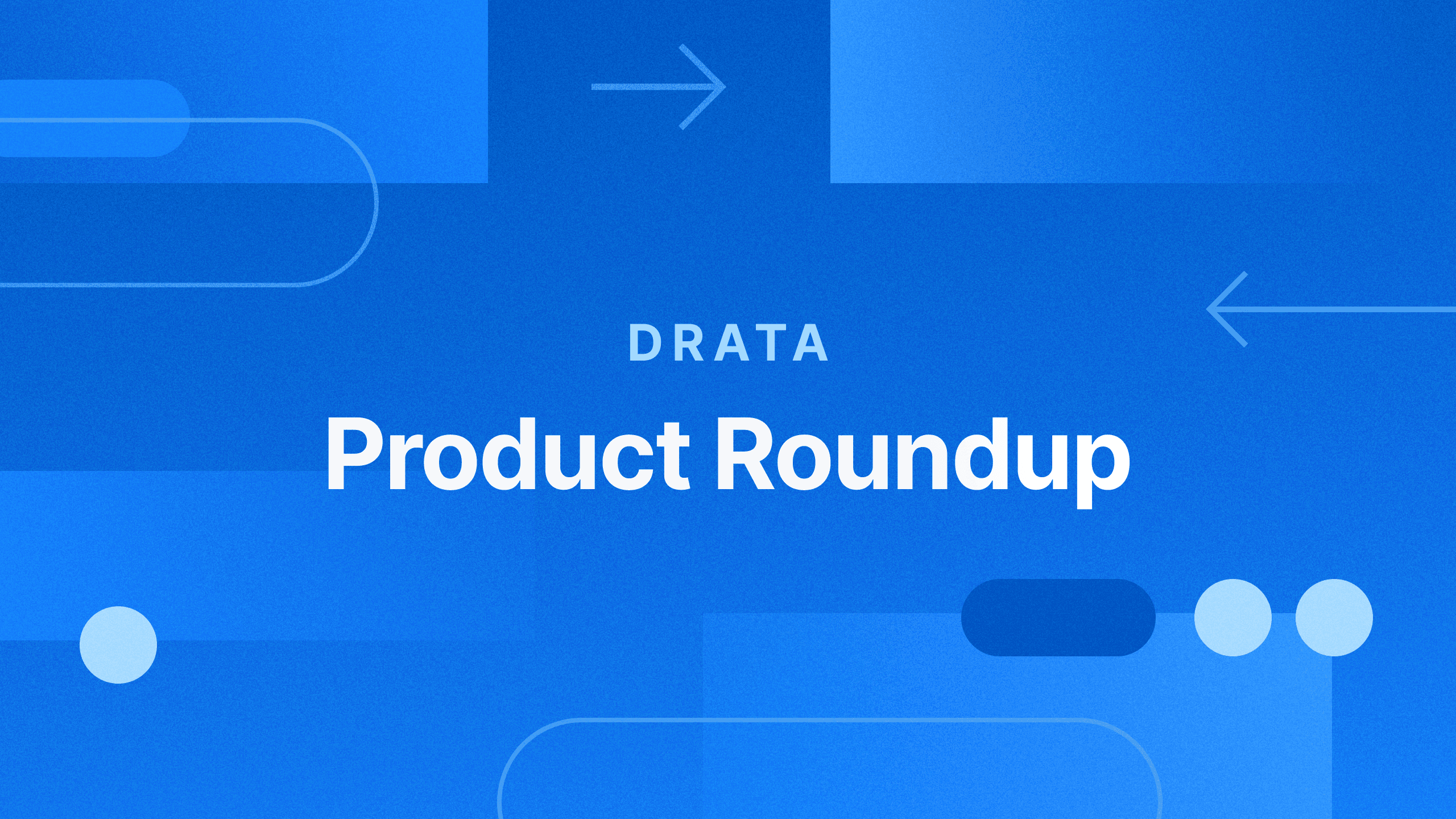Top 10 Vanta Alternatives & Competitors in 2025
Explore the best Vanta alternatives to streamline compliance, automate evidence collection, and scale your security program with the right platform for your needs.
Security and compliance shouldn’t be a bottleneck. Many organizations start with Vanta only to realize they need more flexibility, better integrations, or improved scalability. If compliance feels more like an obstacle than an enabler, it might be time to explore alternatives built to grow with you.
A compliance platform isn’t just another tool—it’s a long-term partner that helps you protect your business and prove how resilient your security measures are. However, not all compliance solutions offer the same level of automation, integration, and scalability. If you’re evaluating alternatives to Vanta, you’re already asking the right question: Which platform will best support your security and compliance journey?
This guide breaks down the top Vanta competitors, highlighting their key features, unique strengths, and ideal use cases. Whether you need real-time security monitoring, automated evidence collection, or seamless compliance workflows, this comparison will help you choose a solution that simplifies compliance, integrates effortlessly with your existing tech stack, and scales as your business grows.
How to Choose a Vanta Alternative
With so many Vanta alternatives available, choosing the right compliance automation platform comes down to more than just features. It should align with your organization’s security needs, compliance frameworks, and long-term growth objectives.
Whether it's deep automation, flexible integrations, or scalable compliance workflows, the right compliance tools can streamline audits and keep compliance operations running smoothly.
Key Features to Consider
When exploring Vanta alternatives, choose a solution that does more than help you meet compliance requirements. It must also integrate seamlessly into your security program, scale with your business, and simplify audit readiness. The right platform will enhance your security posture and reduce manual work.
Here are the key features to look for when evaluating a compliance automation platform:
Compliance frameworks supported: Whatever platform you select should cover major compliance frameworks, such as SOC 2, ISO 27001, GDPR, HIPAA, and PCI DSS, to ensure regulatory alignment.
Automation tools: Look for automated compliance workflows, including evidence collection, continuous monitoring, and audit tracking. Automation reduces the burden of manual tasks, minimizes errors, and keeps your security compliance program on track.
Integration with existing tools: A strong compliance platform integrates with cloud providers, security tools, project management software, and HR systems. Platforms with vendor risk management features also help your business assess and mitigate third-party security risks more effectively.
Trust Center capabilities: A Trust Center is essential for scaling compliance while enabling business growth. The right platform should allow organizations to showcase their security posture in real time, which reduces time spent on security questionnaires and accelerates sales and vendor approvals.
Friendly user interface and support: A clean interface with intuitive navigation and responsive customer support ensures your teams can adopt and manage compliance with ease. A platform that simplifies onboarding and reduces the learning curve leads to faster implementation and better engagement.
Ecosystem of compliance experts: A compliance platform is only as strong as the expertise behind it. An extensive partner network and dedicated customer success teams will help your business set up automation faster, streamline audits, and proactively manage security risks so that compliance isn’t just a burden but a strategic advantage.
Real-time monitoring and alerts: Continuous monitoring helps you identify security risks and compliance gaps before they become problems. Real-time alerts enable proactive remediation, strengthening overall cybersecurity and reducing compliance risks.
Scalability: Your compliance needs will evolve as your company grows. A scalable solution supports startups, mid-market companies, and enterprises, allowing organizations to expand their security program without switching platforms. Companies looking to future-proof their compliance operations should stay ahead of emerging GRC trends, like the increasing importance of environmental, social, and governance (ESG) initiatives.
Customization: Every business has unique security and compliance requirements. The best platforms offer customizable compliance programs, policies, and frameworks so your organization can tailor controls, workflows, and reporting to match your needs.
Whether you’re focused on risk assessment, regulatory compliance, or third-party risk management, finding the right platform will streamline your compliance efforts and strengthen your security posture.
What Does Your Business Need?
The right platform should align with your budget, industry, location, and operational needs, regardless of whether you're a fast-scaling startup or an enterprise navigating complex regulatory landscapes. Here's what to consider:
Scalability for small vs. large organizations: Startups need lean, automated compliance workflows that won’t slow them down, while enterprises require advanced security controls, third-party risk management, and granular access controls. The right platform makes it easy to scale without outgrowing your security posture. Organizations managing large-scale risk programs should consider implementing a risk management framework to maintain compliance as they grow.
Flexibility in automation and control testing: Enterprises often require customization in automated compliance workflows, like tailored control testing and custom formulas for automated calculations. A flexible compliance platform allows organizations to adapt automation to their specific risk landscape, regulatory requirements, and operational processes so compliance doesn’t become a rigid bottleneck.
Cost-effectiveness and pricing models: Compliance shouldn’t break the bank. Look for flexible pricing structures—whether it’s subscription-based, pay-per-feature, or usage-based pricing—to ensure you’re only paying for what you actually need. If you want to prioritize budget efficiency, be sure to weigh the cost of non-compliance against the investment in a long-term data security solution.
Industry-specific requirements: Different industries come with different compliance challenges. A healthcare organization needs HIPAA compliance, a fintech company must meet PCI DSS requirements, and companies handling government contracts might need NIST compliance. Businesses in highly regulated industries should conduct regular risk assessments to identify and mitigate compliance gaps.
Geographical compliance considerations: Regulations vary by region, and a platform should support global compliance efforts. A company operating in Europe needs GDPR compliance, while those handling California consumer data must meet CCPA requirements. Businesses expanding internationally need a compliance solution that adapts to changing regulatory landscapes and ensures proper third-party risk management for vendors across different jurisdictions.
Emerging compliance regulations: As regulatory landscapes evolve, businesses need to be proactive about compliance to stay ahead of new requirements. For example, as of January 2025, DORA (Digital Operational Resilience Act) impacts financial institutions and third-party service providers in the EU. Staying ahead of these changes helps organizations avoid penalties, maintain trust, and ensure operational resilience.
Vendor support and community: Compliance isn’t something you should tackle alone. A strong support team, dedicated customer success managers, and an active user community make a big difference. Organizations should consider platforms with extensive support options, built-in compliance templates, and clear documentation to streamline onboarding and reduce the learning curve.
Understanding these business needs ensures that the compliance solution you choose isn’t just a short-term fix, but a long-term investment in security, scalability, and efficiency.
Top 10 Vanta Alternatives
Now, let’s break down the top Vanta alternatives, and walk through their key strengths, unique features, and ideal use cases. By comparing these options, you’ll be able to choose a compliance automation platform that best suits your industry, security posture, and budget.
1. Drata
Drata is a fully automated Trust Management platform that streamlines governance, risk, and compliance operations for growing businesses. Drata also supports security assurance with Trust Center and Questionnaire Automation products as well as support vendor risk or third-party risk management. Unlike traditional compliance solutions that rely on manual processes, Drata continuously monitors security controls in real-time, automates evidence collection, and simplifies audit readiness—so teams can focus on security, not spreadsheets.
With robust integrations across cloud environments, identity providers, and security tools, Drata keeps compliance frameworks up to date without disrupting your workflows.
Built-in risk assessment and remediation tracking help you proactively address security gaps, while adaptive automation allows teams to customize compliance workflows based on business needs. Drata’s Trust Center also enables you to showcase your compliance with SOC 2, ISO 27001, HIPAA, and GDPR to customers and stakeholders with real-time transparency.
Key Features:
Automated evidence collection with integrations across cloud, HR, and security tools
Comprehensive support for multiple compliance frameworks, including SOC 2, ISO 27001, HIPAA, and GDPR
Built-in risk assessment and remediation tracking to proactively address security gaps
Trust Center capabilities that allow organizations to showcase their security posture and streamline security questionnaires
Live, in-app compliance support with a combination of AI-powered automation and direct access to Drata’s team for faster issue resolution compared to platforms that rely on email-based support
Ideal For:
Startups that need fast, seamless compliance implementation without heavy manual processes
Mid-sized and enterprise businesses looking to scale compliance programs efficiently
Engineering and security teams seeking robust integrations and automation-first compliance workflows
Companies managing multiple frameworks that need centralized GRC capabilities with options for vendor risk management or Trust Center capabilities
Enterprises focused on automation and low-lift implementation
G2 and Capterra Ratings:
Pricing:
Pricing details available upon request
2. Hyperproof
Hyperproof focuses on compliance operations, making it ideal for enterprises that require structured workflows and collaborative compliance management. Compared to platforms that simply help achieve certification, Hyperproof is built to sustain compliance efforts over time, with tools that promote team-based collaboration, workflow automation, and centralized evidence storage.
Users have mentioned that Hyperproof has limited custom reporting options, which can be restrictive for organizations with unique compliance requirements. Others report that the platform’s extensive configurability can lead to a complex and time-consuming setup process, which may require purchasing managed services or dedicating more internal resources to implement.
Key Features:
Centralized compliance workspace for cross-functional teams
Automated evidence collection and document storage
Customizable risk scoring and risk management tools
Pre-built compliance templates for various frameworks
Ideal For:
Enterprises managing multiple compliance frameworks and complex regulatory needs
Teams needing collaborative compliance workflows across departments
Businesses with large security teams requiring centralized risk management tools
G2 and Capterra Ratings:
Pricing:
Pricing details available upon request
3. Sprinto
Sprinto is a compliance automation platform tailored for cloud-native companies, particularly SaaS startups. Sprinto offers pre-approved compliance programs designed to help companies achieve SOC 2, ISO 27001, and GDPR compliance quickly. Its plug-and-play, integration-forward approach makes it an attractive option for non-technical leaders.
Some reviewers have noted that while the platform is effective for standard compliance frameworks, it might not be able to handle more complex compliance needs.
Key Features:
Pre-approved compliance programs for SOC 2 and ISO 27001
Automated evidence collection and real-time compliance monitoring
Integrations with cloud providers and business tools
Ideal For:
Cloud-native companies and SaaS startups that need a fast path to compliance
Non-technical leaders looking for pre-approved compliance programs to streamline certification
Companies aiming for quick audit readiness without extensive manual work
G2 and Capterra Ratings:
Pricing:
Pricing details available upon request
4. Scrut Automation
Scrut Automation is a risk-first compliance platform built for companies in heavily regulated industries like finance and healthcare.
Scrut prioritizes risk visibility, cloud security posture monitoring, and automated risk assessments. It’s especially suited for organizations operating on AWS, Azure, and Google Cloud that need continuous security compliance.
A few users have pointed out occasional system performance issues, such as unstable scaling and slow load times.
Key Features:
Automated risk assessment and risk register tracking
Continuous monitoring of cloud security configurations
Integration with 75+ business and security tools
Pre-built policy templates for regulatory frameworks
Ideal For:
Companies operating in heavily regulated industries like healthcare, finance, and government contracting
Cloud-native companies needing real-time security posture monitoring
Organizations managing security across multi-cloud environments
G2 and Capterra Ratings:
Pricing:
Pricing details available upon request
5. Thoropass
Formerly known as Laika, Thoropass combines compliance automation with hands-on expert support. The platform offers direct access to in-house compliance experts and audit assistance throughout the entire certification process, making it a strong fit for companies that want both automation and human expertise.
However, it's important to note that Thoropass only supports select compliance frameworks, which may limit its suitability for organizations with broader regulatory needs. Some users also find the platform’s navigation confusing, mentioning that deep links don’t always work and that the site requires extra time to explore.
Key Features:
Dedicated compliance experts to guide teams through audits
Automated workflows for security controls and risk assessments
Hands-on support for SOC 2, ISO 27001, HIPAA, and GDPR compliance
Centralized dashboard for monitoring compliance status
Ideal For:
Companies new to compliance that need hands-on guidance along with automation
Teams that require a hybrid approach of automation and expert consulting
Organizations preparing for their first major audit
G2 and Capterra Ratings:
Pricing:
Pricing details available upon request
6. Secureframe
Secureframe is known for its speed-to-compliance approach, making it one of the best choices for startups and mid-sized businesses looking to achieve certification quickly. Its platform prioritizes ease of use, automation, and seamless onboarding.
However, even five-star reviews mention Secureframe’s limited integration capabilities, particularly for custom applications and features, which require you to manually complete compliance tests.
Key Features:
Pre-built compliance templates for SOC 2, ISO 27001, and HIPAA
Automated evidence collection and continuous monitoring
Integration with cloud providers, HR tools, and security services
Compliance readiness tracking with intuitive dashboards
Ideal For:
Startups and fast-growing companies needing quick SOC 2 or ISO 27001 certification
Teams with limited compliance experience looking for a user-friendly platform
Businesses looking for guided onboarding to minimize the learning curve
G2 and Capterra Ratings:
Pricing:
Pricing details available upon request
7. AuditBoard
AuditBoard is an enterprise-grade compliance and audit management platform that provides a full suite of risk, audit, and compliance tools, making it a go-to solution for companies operating in heavily regulated industries.
Users have reported that AuditBoard's complexity may lead to a longer learning curve for teams, especially those without experience in compliance management systems.
Key Features:
End-to-end audit management tools
Integrated risk and compliance tracking
Real-time dashboards for risk visibility
Workflow automation for audit and compliance teams
Ideal For:
Companies in highly regulated industries like finance and healthcare
Organizations that need a full GRC suite beyond just security compliance
Businesses requiring robust internal audit management
G2 and Capterra Ratings:
Pricing:
Pricing details available upon request
8. Scytale
Scytale is a small-business-friendly compliance automation platform that simplifies SOC 2 and ISO 27001 compliance, among others. It is built for startups and mid-sized businesses that want a streamlined approach to audit readiness without excessive complexity.
Some reviewers mention that Scytale’s platform lacks certain advanced features found in other compliance tools, such as the ability to add private policies.
Key Features:
Automated evidence collection and policy management
Pre-built compliance templates for quick implementation
Seamless integrations with cloud services and security tools
Expert compliance guidance for teams new to regulatory requirements
Ideal For:
Startups and small businesses looking for an easy compliance solution
Companies with limited internal compliance resources
Teams needing a lightweight, automation-driven approach
Organizations preparing for their first SOC 2 or ISO 27001 audit
G2 and Capterra Ratings:
Pricing:
Pricing details available upon request
9. Lacework
Lacework is a cloud security-first compliance solution designed for companies with large-scale cloud deployments. The platform integrates threat detection, behavioral analytics, and compliance monitoring, making it an ideal choice for DevOps and SecOps teams managing AWS, Azure, and Google Cloud environments.
While the platform offers robust security features, some users feel that its features are less comprehensive compared to other compliance platforms.
Key Features:
Machine-learning-driven threat detection
Automated security and compliance monitoring
Full cloud-native security visibility across workloads
Real-time compliance reporting
Ideal For:
Cloud-native companies with complex security and compliance needs
DevOps and security teams looking for real-time cloud security insights
Companies managing workloads across multiple cloud providers
G2 and Capterra Ratings:
Pricing:
Pricing details available upon request
10. Strike Graph
Strike Graph differentiates itself with modular, customizable compliance frameworks, allowing businesses to tailor their compliance programs based on their unique security needs.
Its platform focuses on flexibility and AI-powered automation to simplify security assessments and risk management. This makes it a great option for companies that need dynamic compliance workflows rather than a one-size-fits-all approach.
Some users have reported limited integration options, especially with external auditors, requiring teams to manage audit communications manually.
Key Features:
AI-powered automated evidence collection and validation
Customizable security frameworks for various compliance needs
Dynamic dashboards with real-time compliance insights
Integrations with cloud services and security tools
Ideal For:
Organizations with unique security requirements that require tailored compliance workflows
Teams looking to leverage AI for efficient compliance automation
Companies managing multiple frameworks that need an adaptable platform
G2 and Capterra Ratings:
Pricing:
Pricing details available upon request
An Overview of Vanta Alternatives
Want to easily compare the most popular Vanta alternatives? Check out the table below:
Platform | Best For (Company Size & Industry) | Best For (Teams & Roles) |
Drata | Fast-growing startups, mid-market, and enterprise companies that need continuous compliance automation with a full suite of GRC capabilities, including a cutting-edge Trust Center and vendor risk management tools | CISOs, Heads of GRC, security and engineering teams looking for robust integrations and real-time security monitoring |
Hyperproof | Mid-sized to enterprise companies with complex compliance operations and multiple regulatory frameworks | Risk management, GRC, and compliance teams that need structured workflows and centralized compliance management |
Sprinto | Cloud-native companies and SaaS startups looking for a fast, cost-effective way to achieve SOC 2 or ISO 27001 compliance | Engineering and security teams that want an automation-first, developer-friendly compliance solution |
Scrut Automation | Highly regulated industries like finance, healthcare, and cloud-native companies that require continuous security compliance | CISOs, compliance managers, and risk teams prioritizing cloud security posture management |
Thoropass | SMBs and mid-market companies that need hands-on audit assistance alongside compliance automation | Companies new to compliance or those needing a hybrid approach of automation and expert consulting |
Secureframe | Startups and mid-sized companies that want an easy-to-use platform to achieve compliance quickly | Teams with limited compliance expertise looking for a streamlined onboarding experience and automated workflows |
AuditBoard | Enterprises and large organizations with dedicated risk and compliance teams managing internal audits | CISOs, Heads of Internal Audit, and risk management teams |
Scytale | Small to mid-sized businesses looking for a simple, intuitive platform to achieve SOC 2 or ISO 27001 compliance | Companies with limited internal compliance resources that need hands-on guidance and automation |
Lacework | Cloud-native companies and enterprises that need automated threat detection alongside compliance monitoring | DevOps and security teams managing AWS, Azure, and Google Cloud environments |
Strike Graph | Tech startups and mid-sized businesses that need a highly customizable, modular compliance framework | Security and compliance teams that require flexible compliance workflows |
Drata, Your #1 Partner in Compliance Automation
While you have many compliance automation options to choose from, Drata stands apart as a trust management platform that eliminates manual work through automation, flexible controls, risk management capabilities for scaling, and market-leading Trust Center products to drive revenue. You'll never chase down documentation again—our platform continuously monitors your security controls and automatically collects evidence. Through seamless integrations with your cloud environments, identity providers, and security tools, you get real-time visibility into your compliance status and automated evidence mapping to controls.
Your team will spot and fix security gaps before they impact audits, thanks to our sophisticated risk assessment and remediation tracking. And when you're ready to pursue SOC 2, ISO 27001, HIPAA, or GDPR certification, you'll find yourself already prepared—because Drata keeps you audit-ready every day of the year.
Don't let compliance slow down your business. Join the hundreds of companies that have transformed compliance from a bottleneck into a competitive advantage with Drata. We'll handle the complexities of continuous compliance, so you can focus on what matters most: growing your business with confidence.

